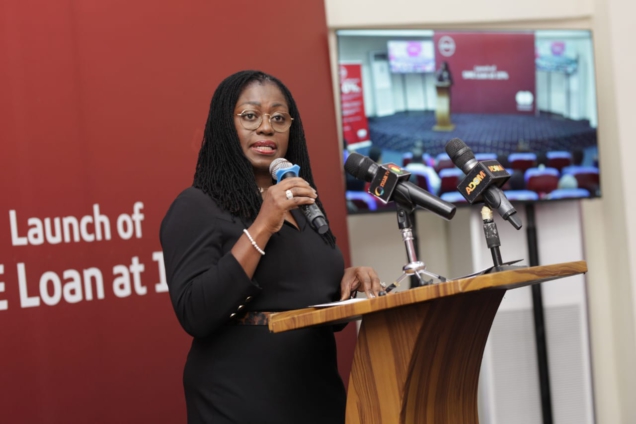The Bank of Ghana (BoG) has expressed optimism its four-year agreement with the International Finance Corporation to train and build the capacity of financial sector players through the implementation of the Integrated Environmental Social Governance Principles (IESG) will go a long way to complement efforts to ensure a resilient and sound financial sector.
The IESG Ghana Programme is a four-year programme of the IFC with funding support from the Swiss Secretariat for Economic Affairs SECO.
It seeks to promote an enabling environment for sustainable banking and to build capacity for improved ESG practices for financial intermediaries (FIs) and corporate clients to help promote stronger and more sustainable local businesses, boosting investments in key sectors of the economy, and leading to a more diversified and resilient economy.
Through its collaboration with BoG, IFC will continue to support the implementation of the Ghana Sustainable Banking Principles, build the capacity of local training partners on ESG-related matters, and support BoG’s ESG-related regulatory developments for banks and other regulated entities.
Speaking at the signing ceremony, Second Deputy Governor of the Bank of Ghana, Elsie Addo Awadzi said it’s the Central Bank’s expectation that this new partnership will help to firmly entrench good practices in sustainable banking in the Ghanaian banking landscape over the next few years.
“We see the launch of the IESG partnership today as a major milestone for promoting the resilience of the banking sector and the economy as a whole. Sustainable banking can be a crucial tool for addressing the structural vulnerabilities of our economy, and can create long-term value for all economic actors, by promoting a more sustainable and equitable future”.
Speaking to Joy Business at the signing ceremony, Senior Country Manager of IFC, Kyle Kelhofer said the partnership will provide players in the financial sector the tools to better address and assess risks while improving sustainability in long-term performance.
“This means not only is Ghana becoming more sustainable green today but becoming more sustainable green for future generations on climate change. This also means the banking system is being more sustainable and bankable so there is room for the banks to grow now as it embraces credit worthy sustainable principles”.
Meanwhile, the Swiss Secretariat for Economic Affairs SECO said it is committing $1.5 million to ensure financial sector players are trained on Environmental Social Governance Principles for the next four years.
Latest Stories
-
Actress Benyiwaa of ‘Efiewura’ TV series dead
9 minutes -
Ashanti Regional Chief Imam dies at age 74
34 minutes -
Africa Arts Network calls for tax reform to save Ghana’s theatre industry
46 minutes -
SSTN Ghana Chapter reaffirms commitment to economic growth under new leadership
53 minutes -
Inlaks strengthens leadership team with key appointments to drive growth across sub-Saharan Africa
2 hours -
Green Financing: What Ghana’s Eco-startups need to know
2 hours -
CHAN Qualifiers: Amoah confident of beating Nigeria
2 hours -
Governments deprioritising health spending – WHO
2 hours -
Lordina Foundation brings Christmas joy to orphans
2 hours -
Yvonne Chaka Chaka to headline ‘The African Festival’ this December
2 hours -
Nigerian man promised pardon after 10 years on death row for stealing hens
2 hours -
MGA Foundation deepens support for Potter’s Village
3 hours -
Galamsey: One dead, 3 injured as pit collapses at Nkonteng
3 hours -
Man, 54, charged for beating wife to death with iron rod
3 hours -
MedDropBox donates to UG Medical Centre
3 hours

